Marking 20 years of ground-breaking research into the UK coffee shop market, the Allegra Coffee Leader Network (ACLN) gathered in London this July to discuss the changing face of British coffee culture. Here are five of the key themes discussed by our expert panel. By Tobias Pearce
.jpg.aspx?lang=en-GB&width=700&height=652)
Twenty years ago Allegra began its ground-breaking research into the UK coffee shop market. As the world braced for the Millennium Bug and the dot com boom brought revolutionary companies like Amazon and eBay into our homes, a radical new concept was hitting UK high streets. The branded coffee shop chain had landed – and business was booming.
Allegra research revealed the market was small, just 590 outlets in 1999, but enjoying a whopping 45% annual growth rate. It was also very Italian, as brands like Starbucks, Costa, Caffé Nero, Aroma and Ritazza (to name but a few) leveraged the cultural capital of espresso to deliver Britain’s first approximations of
il Caffé Italiano.
Their efforts paid off. Today there are more than 7,470 branded coffee shops in the UK generating some £4bn in sales annually – that’s a 1,328% increase on the £280m total branded coffee shop turnover recorded by Allegra in 1999. And although Italian influence shows signs of waning, espresso-based beverages continue to be a cornerstone of the British coffee shop experience.
Another decade, another pivotal piece of tech – in 2007 the iPhone landed in our pockets and a new video streaming service called YouTube was the fastest-growing website in the world. Third-Wave coffee shop cool was in full swing as the British public went wild for flat whites and ditched dark roasts for sweeter espressos.
But by 2009 the global financial crisis threatened to undermine a decade of development in UK coffee shops. Allegra research revealed growth in branded outlet numbers halved from 12.6% in 2008 to 6.6% in 2009. Sales growth was also hit during this turbulent period, slowing to 4.7% in 2009 from 16% the previous year.
But the market was resilient. Allegra forecast continued growth and in 2018 the coffee shop sector is still one of the most robust, dynamic and innovative in the UK economy. Today the sector faces a new set of challenges – the uncertainty presented by Brexit, a perennial decline in high street footfall and oft speculated market saturation must all factor in today’s business strategies.
Leaders from a broad section of the coffee industry gathered at the Allegra Coffee Leaders Network (ACLN) event at Home House, London, to reflect on just how far the industry has come and more importantly – where it should go from here. Here are five of the key themes shaping the UK’s coffee shop industry today.
1. Non-specialists are challenging the traditional coffee shop model
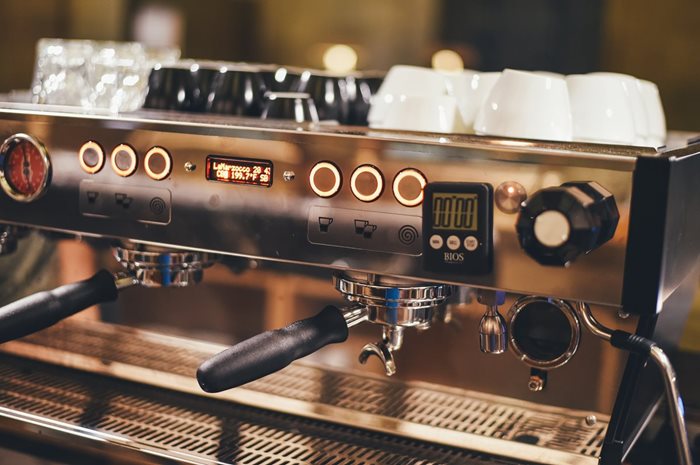
There were around 550 coffee houses in the City of London by 1700 – a higher density than today’s coffee shops relative to population. A century later, this number had fallen to just 12 as coffee houses became private societies, clubs and of course – pubs.
In 2018 it’s frequently observed that coffee shops have benefitted from the historical decline of UK pubs. Without a doubt, the coffee shop sector has efficiently capitalised on consumer appetite for healthier lifestyles and café culture to become a hugely popular third place destination. But what impact will the UK’s 45,000 pubs adopting better coffee have on high street sales?
Today, Allegra estimates the UK’s non-specialist segment comprises almost 10,000 outlets. In what could be hubris for the coffee shop industry, the rise of super automatics and digital business tools is democratising artisan coffee as never before. From vending machines to hotels and supermarket cafés, technology is enabling non-traditional operators to become coffee destinations in their own right.
With falling high street footfall and lower consumer confidence already impacting sales among major coffee shop chains, the specialist sector should heed the growing ability of non-specialists to attract traditional coffee shop customers.
“There’s 45,000 pubs out there and only 7% serve high street quality coffee. The rise of non-specialists is coming – and it’s going to cause a lot of high street pressure"
– Dan McGrath, Head of Marketing, UCC
2. Tailored, experience-led offerings will be key to high street survival
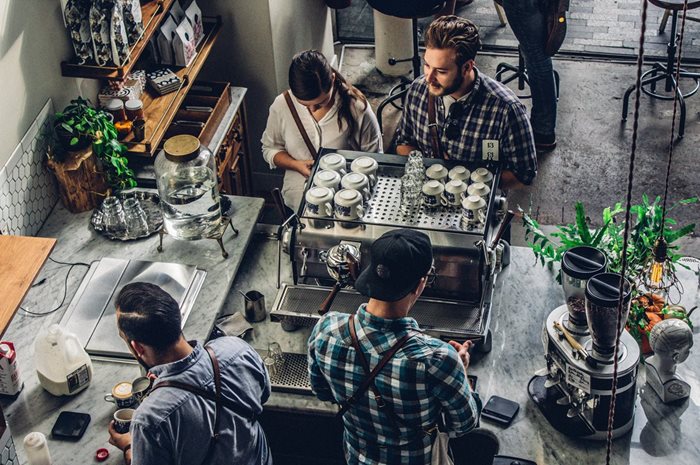
The UK has reached ‘peak stuff’. According the Office of National Statistics, the average person used 15 tonnes of material in 2001, a figure that has steadily declined as consumers shun possessions in favour of experience-led offerings.
Coffee shops have been a hugely successful in capitalising on this cultural trend, becoming popular destinations for work, socialising and convenience. By offering in-store experiences such as tastings, barista theatre and in-house roasting, the industry has generated a unique and highly attractive cultural proposition. But with high street footfall declining and consumer spend squeezed it’s now more important than ever for coffee shops to foster a culture of engagement.
With a smartphone in every pocket, consumers are consuming a growing array of digital content on the move. But so-called ‘digital rabbit holes’ represent a new challenge for coffee shops when customers become oblivious to carefully curated in-store environments.
But rather than viewing these channels as a threat, coffee shops must convert digital trends into in-store experiences. In our age of frictionless transaction, interactive menus, loyalty apps and smart payment systems, digital engagement can make all the difference in maintaining footfall.
But it’s not just screen time that’s important. By becoming experiential destinations, coffee shops can use the power of inclusion to thrive in today’s challenging high street conditions. Whether focussing on sustainability, helping coffee producers or giving back to the local community, coffee needs to be about inclusivity, championing causes and togetherness.
"Coffee is becoming a bigger part of everyday life and has the power to foster community. We’re seeing brands reimagine the coffee shop to create a wider conversation about experience"
– Lewis Allen, Director, Portland Design
.
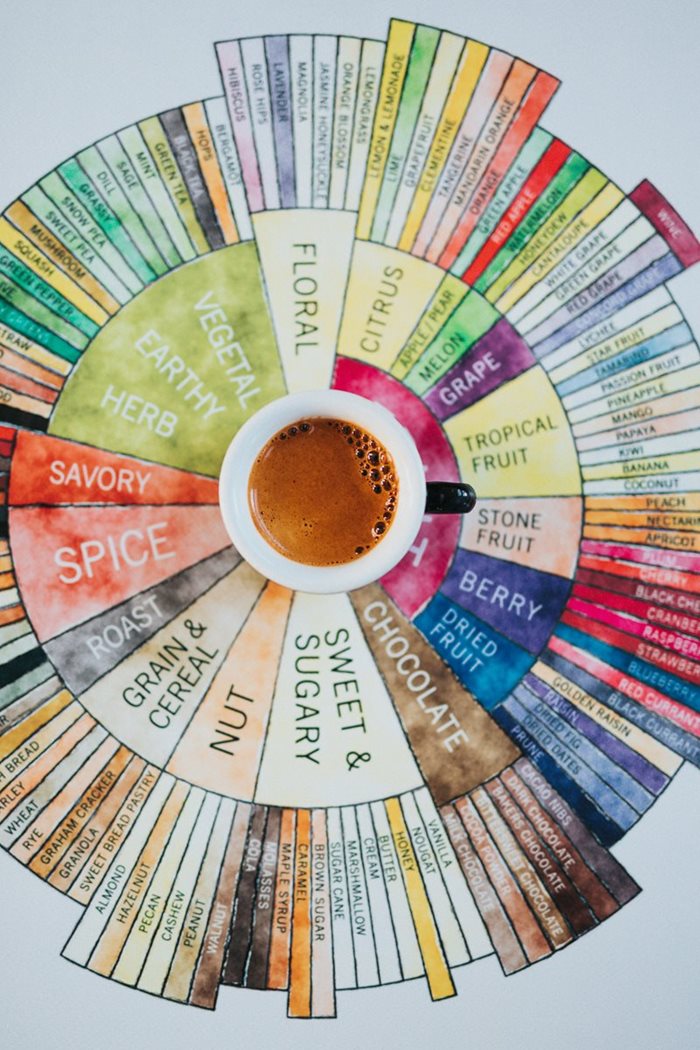
3. Premiumisation is here to stay
Twenty years ago, cappuccino became the height of sophistication as the UK embraced better coffee through the prism of Italian culture. In 2018, even your local greasy spoon probably has a professional espresso machine in its kitchen
When it comes to coffee, the UK has never had it so good – and consumers are demanding more premium products than ever before. Today, a good espresso is no longer a luxury, it’s an expected standard after a pub lunch or waiting for a train. Elsewhere, the thirst for convenience has seen the gourmet coffee vending market grow to more than 9,500 units, democratising quality coffee at motorway service stations, workplaces and waiting rooms. Premiumisation has also spread to the home, with Allegra estimating 12.6 million UK households now own a pod machine.
In 2018, the premium specialty sector is driving innovation among international chains, with new products like nitro cold brew and cascara inching toward the mainstream. It’s also increasingly common to see a rotating menu of single origin coffees and super-premium small batches on offer – something that was limited to all but a few artisan coffee shops a decade ago.
Yet the industry still has no agreed definition for ‘specialty’– which can mean anything from simply ‘not instant coffee’ to a £70 cup of Kopi Luwak. But as 30,000 visitors to 2018’s
London Coffee Festival will probably attest, the UK’s quest for better coffee is far from over.
"We know guests are demanding better quality coffee because they are experiencing it on the high street. The range of drinks has broadened and the environments have improved massively"
– Wayne Horo, F&B Director, InterContinental Hotels
4. Traditional brands will be challenged by demand for supply chain transparency
The coffee industry has worked tirelessly over the last 20 years to edge consumers toward more sophisticated coffee propositions – and it’s been hugely successful in introducing 3
rd Wave artisan principles to the mainstream.
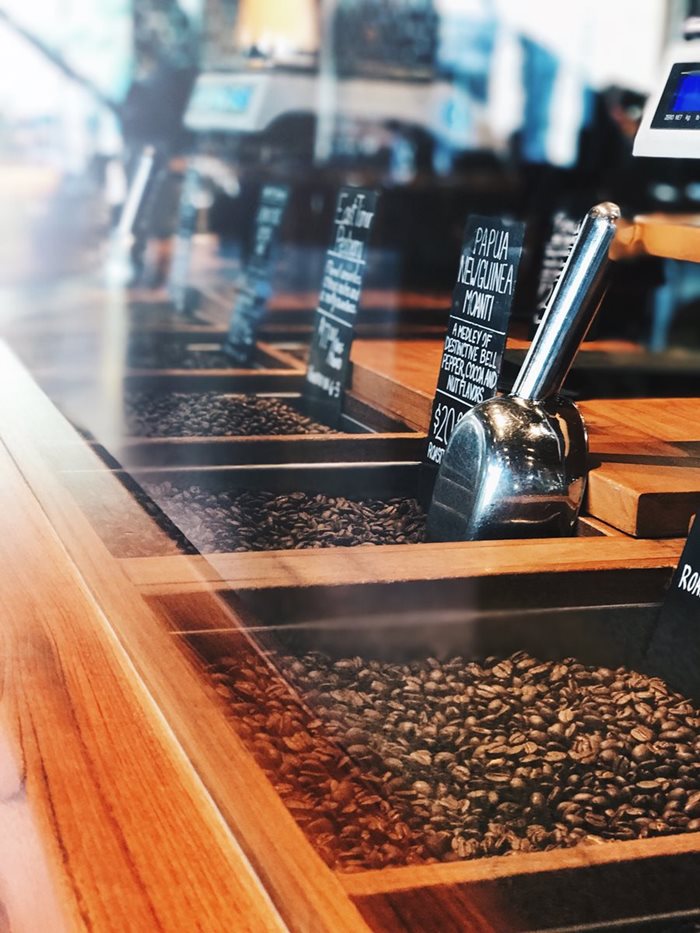
Instantly recognisable brands have become ambassadors for good coffee, providing consumers with reliable signposts to quality and consistency. Today these big coffee brands are ubiquitous across UK hospitality and non-specialist sectors where 20 years ago they would have been considered niche.
But could this education drive become a victim of its own success? As consumers seek more varied and complex coffees, there are signs that big brands, along with their trusted flavour profiles, are losing market share to the variety and accountability presented by micro roasters and direct trade.
Coffee is becoming more like wine, with terroir, growing altitude and bean variety all becoming part of the established market vocabulary. Consumers are broadening their pallets as never before and demanding more clarity on coffee supply chains, more bean variety and an increasing array of brewing methods. As the specialty coffee narrative becomes a key factor behind consumer choice, established labels must grapple with the challenge of adapting to evolving expectations while maintaining brand integrity.
“For the first time in the 1990s brands became part of people’s cultural capital. Today we have the rise of single origin and the creation of a new class of beverage”
– Professor Jonathan Morris, Coffee Historian, University of Hertfordshire
5. 5th Wave thinking will define a new era of UK coffee shops
With a focus that is fundamentally commercial, the 5
th Wave departs from some 3
rd and 4
th Wave convention that big business can’t deliver boutique hospitality. It’s a new way of thinking that embodies dedication to excellence, hyper professionalism and delivering quality at scale.
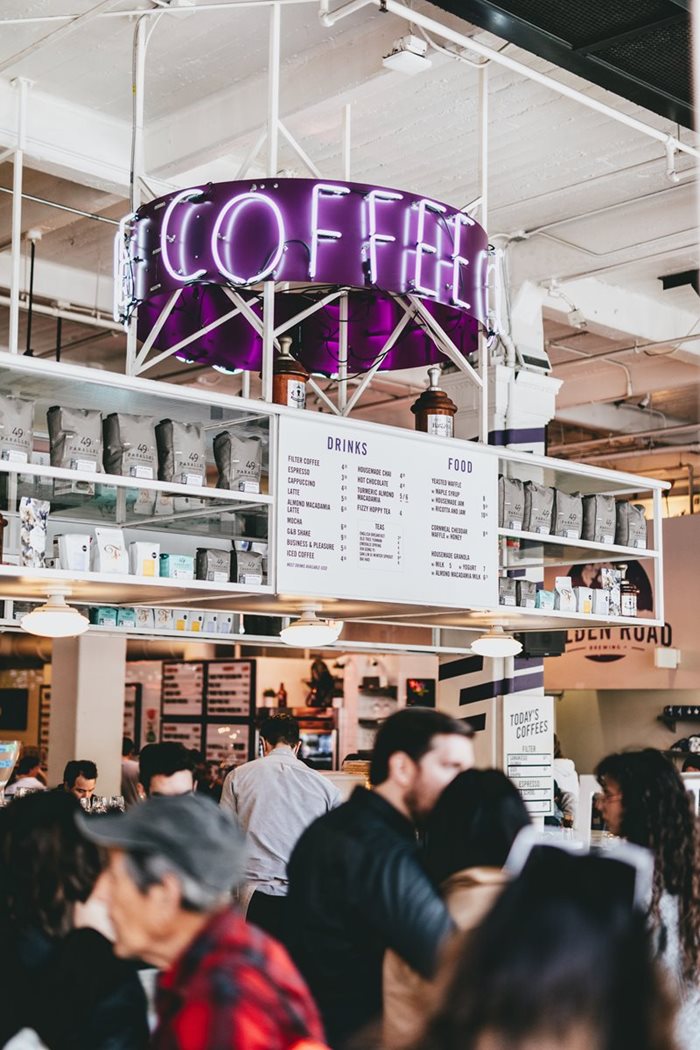
Today, the 5
th Wave is evident in a small but growing crop of artisan concepts. The likes of Caravan and Grind are not only serving world-class coffee and food but also attracting hefty investments to grow their businesses apace.
But the 5
th Wave isn’t limited to specialty coffee shops. It’s a revolutionary way of doing business across specialist and non-specialist sectors catering to an increasingly sophisticated, discerning and price-conscious public. It’s a new business era obsessed with understanding customer needs – and delivering on them consistently.
Technology will play a crucial role in shaping the UK’s 5
th Wave economy. It’s rapidly opening new fronts in customer engagement, with super automatic machines evolving the barista role and democratising artisan coffee as never before. Meanwhile, operators across the hospitality sector are driving efficiency and consistency across their business through loyalty apps, smart payment systems and cloud-based organisation tools. This new era –
the business of coffee – will be the next evolutionary step in the UK coffee shop market.
“This new crop of hyper-professional hospitality concepts will set the benchmark for years to come and filter the premium experience down through the whole economy”
– Jeffrey Young, CEO & Founder, Allegra Group
The Allegra Coffee Leaders Network (ACLN) provides thought leadership to coffee shop operators, suppliers and distributors through an annual line-up of reports, events, products, debriefs and study tours. ACLN members have access to the most up-to-date market data, coffee shop consumer insight, competitive intelligence and analyst support. To become a member or to find out more,
click here.